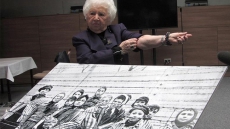OTTAWA — The Supreme Court of Canada has unanimously overturned its own 1993 decision and struck down a ban on providing a doctor-assisted death to mentally competent but suffering and "irremediable" patients. Here are five things to know about the decision.
---
In 1993, in the Sue Rodriguez case, the court ruled 5-4 that the ban on assisted suicide was a violation of the Charter of Rights and Freedoms, but was reasonable under Sec. 1 of the charter. The two cases, while similar on their face, actually pivoted on different points of constitutional law.
---
In the latest case, a British Columbia judge said she was justified in revisiting Rodriguez and the Supreme Court agreed. "Trial courts may reconsider settled rulings of higher courts in two situations: (1) where a new legal issue is raised; and (2) where there is a change in the circumstances or evidence that fundamentally shifts the parameters of the debate. Here, both conditions were met."
---
The high court pointed out that in 1993, assisted suicide was a rarity around the world, with some jurisdictions turning a blind eye to the practice while officially outlawing it. "By 2010, however, eight jurisdictions permitted some form of assisted dying: the Netherlands, Belgium, Luxembourg, Switzerland, Oregon, Washington, Montana and Colombia."
---
In ruling that the blanket prohibition on assisted suicide is unconstitutional, the justices suspended the decision for a year to allow the federal government to draft legislation that recognizes the right of plainly consenting adults who are enduring intolerable suffering — physical or mental — to seek medical help to end their lives.
---
The decision will be a political bomb in a Parliament already counting down to an October election. Tory MP Steven Fletcher, a quadriplegic who has two private bills on assisted dying before the Commons, says the government could easily take the issue off the election radar by acting before Parliament rises in June. Justice Minister Peter MacKay says only that the government will take its time.





